On 25 October/7 November 1917, the Bolsheviks seized power in Petrograd from the so-called Provisional Government. It was a relatively easy thing to do for the Provisional Government enjoyed little or no popular support and basically represented the interests of the former tsarist urban and rural elites. It opposed the deepening of the revolution apart from the abdication of Tsar Nicholas II earlier in the year, and it sought to keep Russia in the Great War on the side of the Entente powers, notably France, Britain, Italy, and the latecomer, the United States, which had come into the war in April 1917. The idea was to re-impose military discipline on militant soldiers, get them out of Petrograd and back to the front where they could be separated from their revolutionary inclinations.
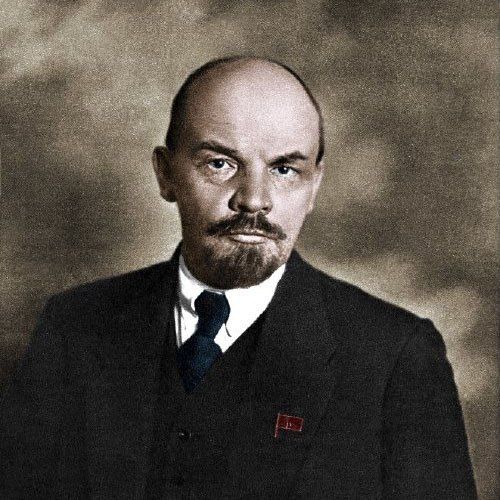
Bolshevik leader V. I. Lenin accused some of his colleagues of “strike breaking” and of losing their nerve.
This was one time when entrenched elites could not dam up a revolutionary tide. Centuries-old grievances of the peasant and proletarian masses, aggravated by the bloodshed of the Great War, created the right circumstances for revolution. The Bolsheviks put themselves at the head of this popular movement, mobilising its remarkable energy through the Soviets (or councils) of soldiers’, workers’ and eventually peasants’ deputies to seize power in Russia. It was of course one thing to take power and quite another to hold on to it. The Bolsheviks had many enemies. Amongst the so-called revolutionary parties, only the Left Socialist Revolutionaries (SRs) supported the Bolsheviks and entered into a coalition government with them in December 1917. Other fringe groups backed the new Soviet government, but the rump SRs and most of the Mensheviks allied themselves with the Kadet party, representing the old elites, to oppose the Bolsheviks and indeed to oppose the authority of the Soviets.
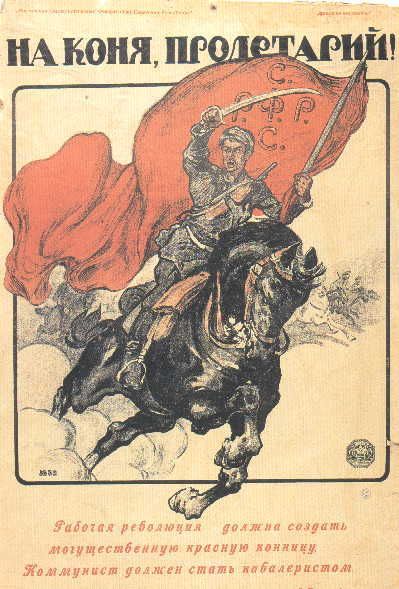
The Bolsheviks had to organise new forces to defend the revolution in the distant reaches of the country
For the Russian elite the Bolsheviks were “gorillas”, or “genuinely insane people who belong[ed] in a psychiatric hospital.”
“Where is the escape from this bedlam?” the “decent” classes wanted to know.
The Bolsheviks were themselves not united in taking power or in attempting to govern alone through the Soviets. Bolshevik leader V. I. Lenin accused some of his colleagues of “strike breaking” and of losing their nerve. The faint-hearted could of course marshal plenty of arguments for their lack of boldness. Groups of army officers and officers-cadets sought to overthrow Soviet authority, supported by rump SRs and Mensheviks, who hated the Bolsheviks as intensely as the old tsarist elites. In December 1917 everything was in chaos. Soldiers went on a long binge in the capital, raiding the wine cellars of the elite. Latvian sharpshooters and firefighters were called in to stop the looting and flood the cellars. While comrades were drunk, who would defend the revolution? It was the middle of winter and cities had to be supplied with food and coal for heat. Workers who backed the Bolsheviks had to be kept employed when the economy was failing and factories were closing. Families had to be fed.
Russia’s frontiers stretched far beyond Petrograd and Moscow. Enemies were everywhere trying to overthrow Soviet authority. The Bolsheviks had to organise new forces to defend the revolution in the distant reaches of the country. How audacious of Lenin to think he could overcome the chaos. The elites at first laughed at the Bolsheviks’ temerity, thinking they could not hold power for more than a few days, or a few weeks. Armed resistance began at once and was put down in bloody skirmishes near Petrograd and in Moscow. These first victories wiped the smiles off the faces of the privileged classes.
Quite apart from dealing with internal enemies, there was a war going on against Imperial Germany and its allies, whose armies were approaching Petrograd. Nor could the Entente powers, Russia’s allies in the Great War, be ignored. They viewed the revolution and the Bolshevik seizure of power as an unfathomable catastrophe. The so-called Allies were appalled by the collapse of the Russian armies and by the resulting threat to Allied economic interests in Russia. The British and French military missions were well informed and reckoned that the Russian army could not fight beyond the coming winter, no matter who governed in Petrograd. Ideas were mooted in Paris and London about “a peace on the back of Russia” with the country dismembered, much as China was, and divided into great power spheres of interest. In effect, Russia would cease to exist as a united, independent state. These contingency plans were developed before the Bolshevik seizure of power when the Allies hoped that the Soviets would be dispersed and the Bolsheviks hanged.
Lenin had no illusions about the western imperialist powers, but he seemed not to have paid too much attention to them in his calculations for seizing power and establishing a Soviet government. It was first things first. His biggest concerns were to neutralise or defeat internal enemies and to end the war with Germany and its allies. The Bolsheviks had no choice. The soldiers at the front were demobilising on their own initiative and abandoning the trenches. Lenin had himself talked of “revolutionary war” against the German invader, but that was only possible if you had armies willing to fight. “Go and take a walk,” he said to colleagues, “hear what the soldiers say in the streets.” All the same, his fellow Bolsheviks were a highly independent-minded lot, and many were not prepared to accept a disadvantageous peace imposed by Imperial Germany.
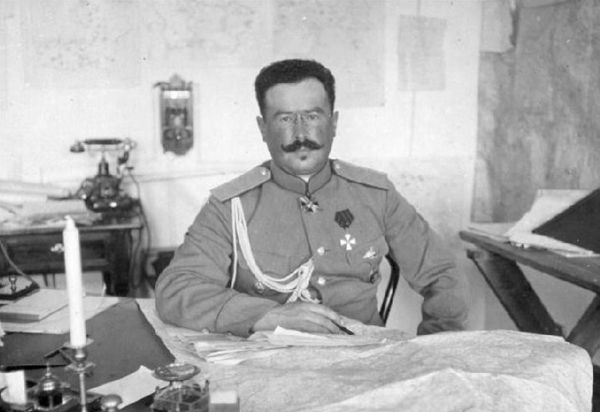
General N. N. Dukhonin
On 7/20 November the Soviet government ordered the commander of Russian forces, General N. N. Dukhonin, to seek an armistice with the German high command. Unwilling to comply, General Dukhonin ignored Soviet orders. Lenin immediately sacked him. He named veteran Bolshevik N. V. Krylenko as the new commander-in-chief, and despatched him to the front. On 13/26 November Krylenko sent delegates across no-man’s land, preceded by a bugler and a large white flag. They were met by a German officer who led them back across German lines.
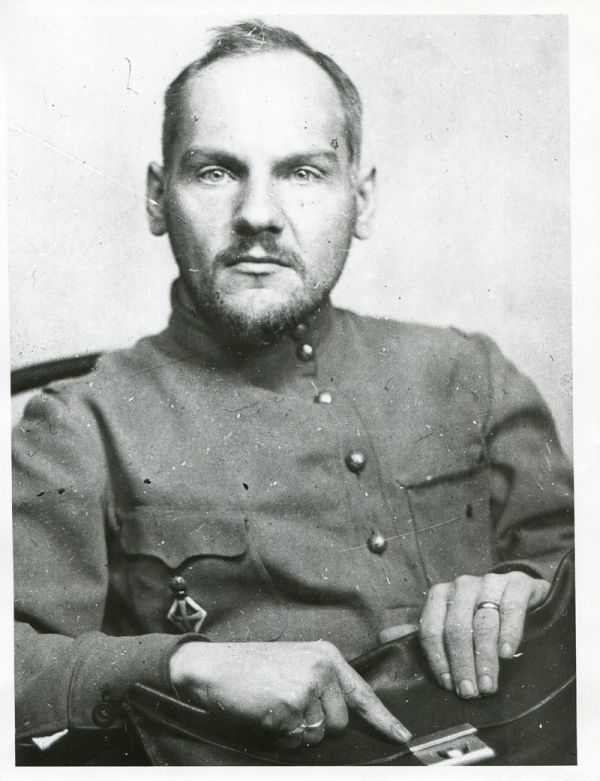
N. V. Krylenko
As these events unfolded, the Allied ambassadors in Petrograd were discussing how to check the Bolsheviks. One idea was to send 8 to 10,000 Allied troops to Petrograd to protect Allied nationals and back any government which might follow the Bolsheviks. This was putting the cart before the horse. The proposal was scotched as unrealistic.
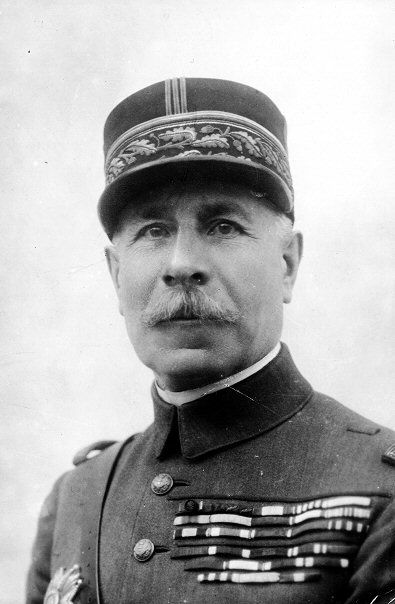
General Henri Albert Niessel
On 9/22 November the new French président du Conseil, George Clemenceau, sent instructions to General Henri Albert Niessel, the head of the French Military Mission, to inform Dukhonin that France refused to recognise the new Soviet government and counted on the Russian high command to reject all “criminal peace negotiations” and to keep the Russian army in the field against the common enemy. Clemenceau, le tigre, was effectively encouraging Dukhonin to raise the army against the Bolsheviks. Since many if not most Russian soldiers backed the Bolshevik plan to end the war, the French démarche was a needless provocation more likely to be dangerous to Dukhonin than to the Bolsheviks.
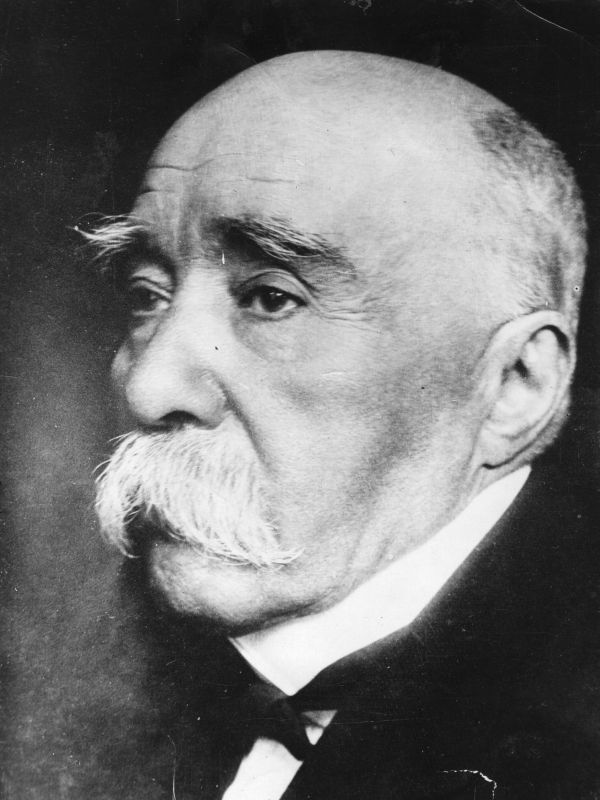
Georges Clemenceau
The Bolshevik reaction was predictable. Accusing the Entente of meddling in Soviet domestic affairs—which was the least one could say—L. D. Trotsky, commissar for foreign affairs, responded by publishing the so-called Entente “secret treaties” dividing up enemy territories after the war.
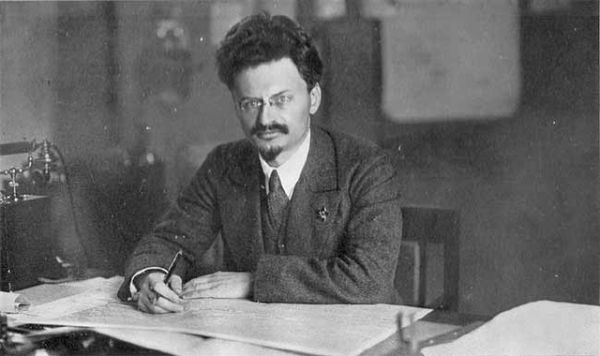
L. D. Trotsky
“You see,” Lenin declared to Allied soldiers, “you are only cannon fodder fighting for the plunder of western imperialist elites.” Lenin’s idea was to mobilise European public opinion against the war and provide propaganda for militants in the west who wanted to make their own October Revolutions. As Trotsky made clear, the Soviet government desired a general, not a separate peace, so soldiers in Europe could turn their bayonets against their own bourgeois elites.
At a meeting in Paris at the beginning of December (new style), the Entente powers could not agree on a collective reply to Trotsky’s call for an armistice on all fronts. Once anyone started to talk peace, the Italian foreign minister noted, French and Italian soldiers would refuse to take up arms again. Prime Minister David Lloyd George feared “a rot would set in” over continuing the war. The Bolsheviks were counting on just that. It was not an unrealistic calculation: even Allied leaders feared popular anti-war opposition. A general armistice was therefore out of the question. The Allies agreed to stop shipping supplies to Russia and to start generous funding of “pro-Allied propaganda” hoping an acceptable Russian government would replace the Soviets.
In the meantime, General Dukhonin remained in contact with the Allied embassies in Petrograd and continued to make trouble at the front. He released from custody the infamous General L. G. Kornilov and other high-ranking officers who fled to the south. Their intention was to organise armed resistance against the Soviet government. Dukhonin would not be joining them however: on 20 November/3 December he was beaten to death by angry soldiers.
“What would ‘the comrades’ do next?” one anti-Bolshevik professor in Moscow wrote to his journal: “Events are unfolding at a mad pace.”
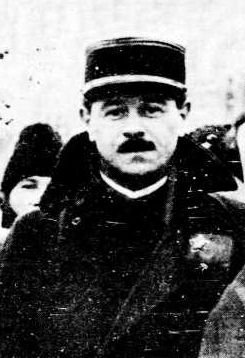
Captain Jacques Sadoul
The Allied leaders were not fools and had no intention of walking into the trap which Lenin and Trotsky had set for them. The Bolsheviks would have to negotiate alone with the Germans. Trotsky drew the logical conclusion that the Soviet government needed options and potential allies. If an armistice did not hold, the Bolsheviks would have to fight and to fight they would need help. The only help available was from the Allied powers. In Petrograd French General Niessel drew the same conclusions and therefore authorised one of his junior officers, Captain Jacques Sadoul, to keep in touch with the Bolsheviks. Every day Sadoul talked to Lenin, Trotsky and various other Bolshevik leaders. He had lengthy discussions with Trotsky who himself raised the question of French assistance in organising a new army (2/15 December). Sadoul wanted to pursue this option and urged his superiors to keep an open mind. Kornilov, the rump SRs, Mensheviks, and so on, were “burnt-out stars” (étoiles éteintes). Their attempts to organise against the Bolsheviks had been “still-born”. Everyone agreed on the necessity of an immediate peace, but “the aristocracy and bourgeoisie” were more inclined to capitulation than the Bolsheviks. Even Lenin was keeping his options open if he was willing to meet a subaltern French officer on a regular basis.
Captain Sadoul could not speak directly to the government in Paris, let alone in London or Washington. Clemenceau would not have listened anyway for he dismissed the Bolsheviks as “German agents”. In Washington, President Woodrow Wilson and his Secretary of State, Robert Lansing, were outraged by the Bolshevik seizure of power and by their attempt to turn the rightful class order of things (as Lansing put it) upside down. While Sadoul was talking cooperation with Trotsky, other French and British officers were recommending financial support to fund anti-Bolshevik resistance in southern Russia, in particular in the Ukraine and the Don. At end of November (n.s.) a first credit of 50,000 francs was approved, then a million rubles, for General Niessel. A week later, it was three million francs and before the ink was dry on that authorisation, unlimited credits were approved for the French military mission operating out of Jassy in rump Romania, that part of the country not occupied by German forces. The blank check in effect was for action in the Ukraine and the Don, where armed resistance against the Bolsheviks was being organised. The British did the same. The Anglo-French policy was to throw packets of banknotes to the four winds and hope they stirred up resistance to the Bolsheviks. There were more sober reports, and not only from Captain Sadoul, saying that the Allies should not count on Russian generals and Ukrainian “nationalists” to fight anyone. But Clemenceau refused to listen. The French idea was “to support elements of resistance to the Bolshevik usurpation.” That was the main objective, overthrow “the Bolsh”. In late December (n.s.) the British and French agreed to “spheres of action” in southern Russia which corresponded to the pattern of their pre-war investments. It was a further step along the line earlier laid out to partition Russia into great power spheres of interest.
When Sadoul looked around, he saw colleagues driven by a “blind fury” against the Bolsheviks. According to them, the Entente faced two enemies, Germany and the Bolsheviks, but Sadoul’s colleagues “detested and feared the second more than the first.” They preferred to let Germany crush the Soviets rather than to help them to defend Russia because that would leave the Bolsheviks in power. Better to cut off one’s nose to spite one’s face.
Would this politique du pire work? There were enough skeptics in Paris and London to keep the door ajar to Sadoul’s ideas. In mid-December (n.s.) the British Cabinet decided to avoid an “open breach” with the Bolsheviks and to pursue a policy similar to what Captain Sadoul was proposing. “Let’s not drive them into the German camp” was the general idea. Prime Minister Lloyd George was particularly receptive even as British agents went to work in the Ukraine to support “nationalists”. The British minister in Jassy sent £30,000, not pin money in those days, to an agent in Kiev. Assistance to forces in the south was to be directed against the Germans not the Bolsheviks. Did the Allied left hand know what the right hand was doing? Of course, it did. Anyone who knew anything, knew that the new forces which the Allies were bankrolling would fight the Bolsheviks, not the Germans.
There was bedlam in Russia, and a policy of chaos might be the best way to counter it. Did Sadoul’s ideas have a chance in such circumstances? Would the Bolsheviks be open to working with Anglo-French imperialists? At the end of December 1917 it was too early to tell, but in the first months of the new year this question would be addressed at the highest levels of the Entente governments.









